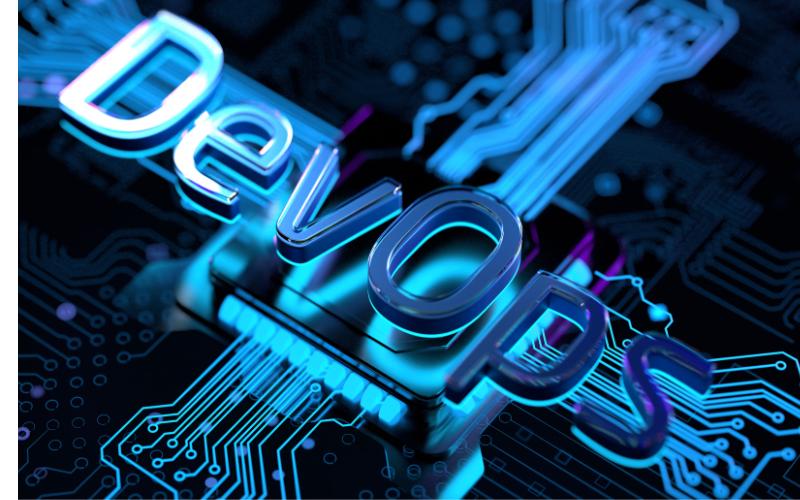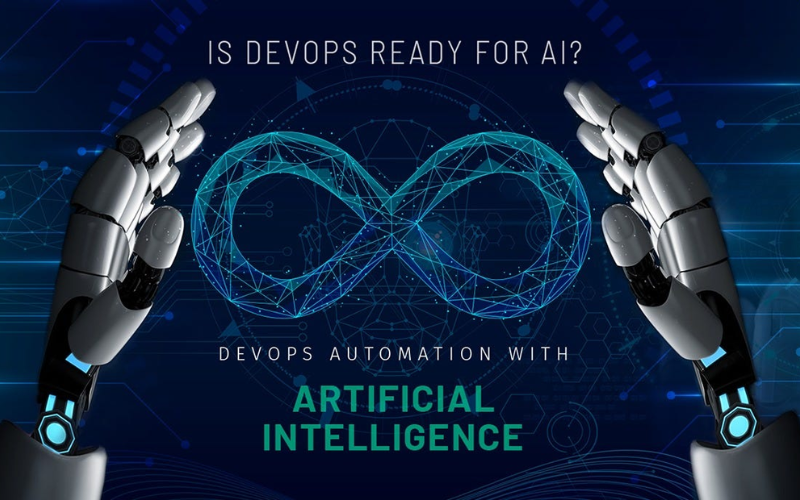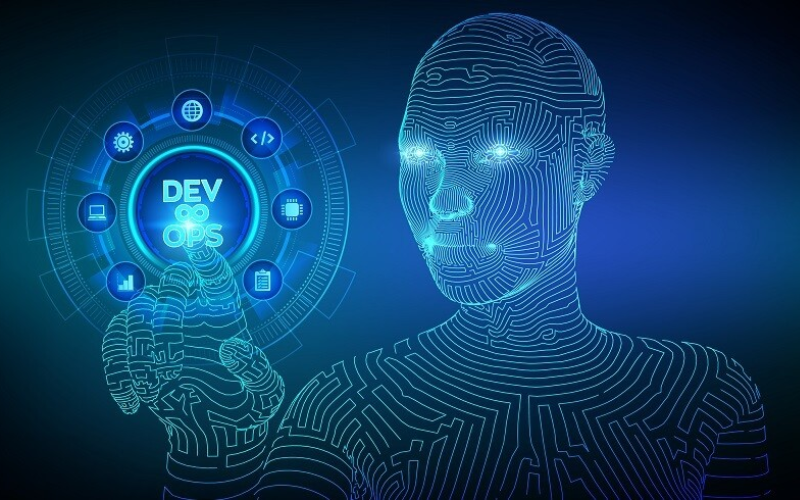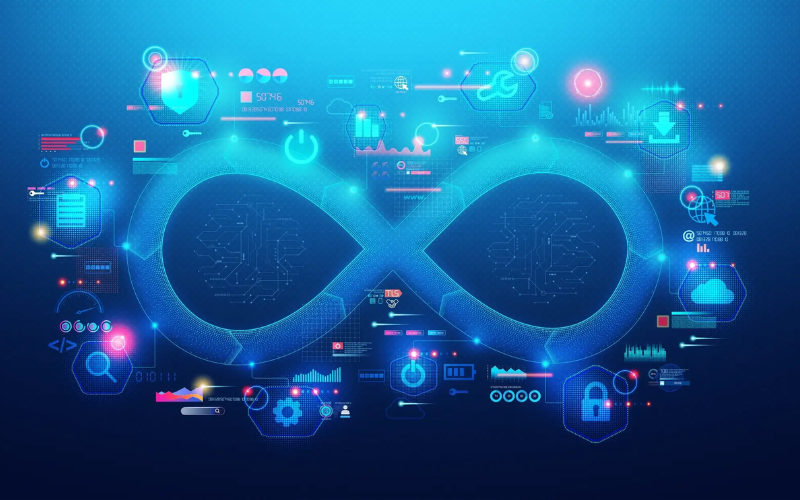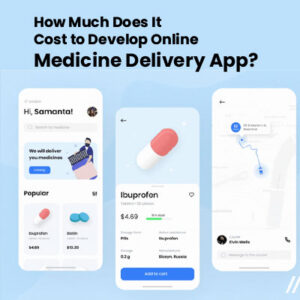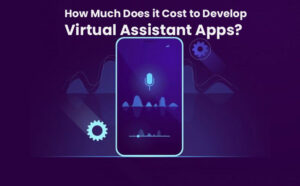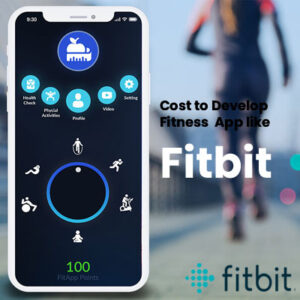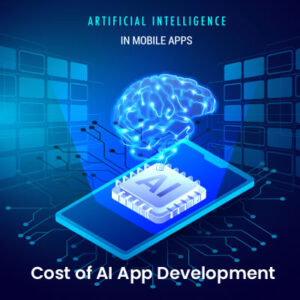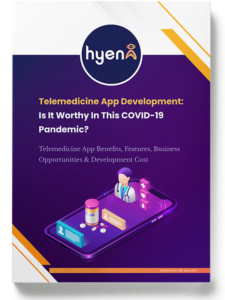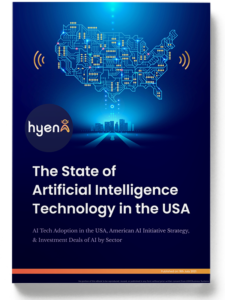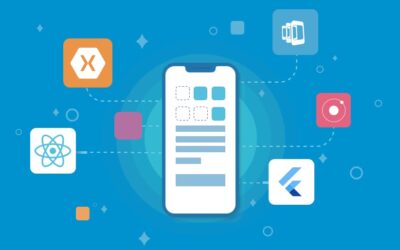The Role of AI in DevOps: Types, Benefits, and Challenges
The Role of AI in DevOps: Types, Benefits, and Challenges
In the current times, with the rapid digital age, Artificial Intelligence (AI) and DevOps utilization are rapidly transforming into a driving force for software development life cycle. The role of AI in DevOps aligns the development and operations teams to speed up the software delivery lifecycle, to a large extent. By using AI in monitoring, automation, testing, and deployment, AI makes the DevOps development team efficient, precise, and timely. Here the discussion is about the implementation of AI in DevOps and also AI adoption, advantages, and how organizations can use AI in the DevOps pipeline.
DevOps Development and Challenges Around It
DevOps is attempting to foster a culture of team collaboration between the IT operations team and the software developers in producing high-quality software in a shorter time and in a more reliable manner. DevOps practices such as Continuous Integration (CI), Continuous Deployment (CD), infrastructure as code, and automatic testing, although being of maximum relevance to efficiency, still face the following issues:
- Handling massive data and logs
- Outlier detection online
- Automating mundane but intricate tasks
- Reduced human error
- High performance and availability of applications
The Role of AI in DevOps
AI can be implemented at different phases of the DevOps cycle, planning, development, testing, release, deployment, operation, and monitoring. AI is all about injecting intelligence into automation to enable systems to learn from data and get better continuously without any human intervention.
Key roles of AI in DevOps include:
- Predictive Analytics
AI is able to compute historical data for failure estimation of the system, bottlenecks on performance, and utilization. The DevOps team may then be allowed to fix problems prior to escalation.
- Anomaly Detection
Historical monitoring tools are capable of notifying after failure has been realized. AI applications can check anomalous traffic in logs, metrics, or application activity and notify teams prior to the issue without causing downtime.
- Automated Root Cause Analysis
Artificial intelligence can process millions of telemetry data and logs to identify the root cause of issues in minutes, which would take hours or days to do manually.
- Intelligent Test Automation
AI can optimize test coverage by identifying useful test cases, prioritizing them based on historical defect patterns, and even generating new test scenarios using NLP.
- Resource Management
AI dynamically reallocates computing resources to meet existing demand, improving cost and application performance.
- Continuous Feedback Loops
Artificial intelligence networks learn and adapt with each implementation and use to provide continuous feedback, helping groups make adjustments and improve themselves over a span of time.
Types of AI Technologies Used in DevOps
Other AI methods play different roles in DevOps activities. The most common ones are:
- Machine Learning (ML)
The majority of DevOps tools powered by AI employ machine learning ML algorithms. Such algorithms have different prospects to learn from the past and, thus, can do activities like anomaly detection, prediction of maintenance, and decision-making.
- Natural Language Processing (NLP)
NLP allows DevOps tools to be able to read human language so that intelligent document analysis, defect fixing in chatbots, or automatic test case generation from requirements documents is possible.
- Deep Learning
Deep learning, as one of the forms of ML in the appearance of neural nets, is best suited to deal with unstructured data like logs, images, or video. Deep learning has a role at the level of high-level monitoring, fraud analysis, and automated quality assurance.
- Reinforcement Learning
This aspect of machine learning enables the systems to learn from the world by experiencing interactions with the world. DevOps uses it for auto-healing, incident response due to it, and even adjustments in CI/CD pipelines.
- Computer Vision
Computer vision can be applied for features like visual UI testing, where AI senses UI changes or bugs by image comparisons.
Advantages of AI in DevOps
Application of AI in DevOps operations provides various advantages to development teams and businesses:
- Improved Efficiency
AI enables automated time-consuming activities such as testing, monitoring, and deployment to enable teams to concentrate on higher-level processes.
- Enhanced Accuracy
With data-driven suggestions and large data sets, AI reduces human mistakes and enhances decision-making in complex systems.
- Enhanced Time to Market
With faster detection of problems and smart automation, the software can be pre-installed, pre-tested, and pre-developed months ahead of time.
- Problem Resolution in Advance
Issues can be detected by AI beforehand and can be resolved by DevOps teams beforehand with the best possible availability of the service.
- Cost Optimization
With better utilization of resources and monitoring by intelligent AI, cost optimization of infrastructure to a large extent without any compromise on performance.
- Real-Time Optimization
AI models learn and enhance even more over time and keep enhancing the performance, security, and reliability of the DevOps pipeline.
Real-Life AI DevOps Applications
Some technology startups and businesses already utilize AI with DevOps an attempt to maximize their DevOps efficiency. Some of the real-life applications are:
- AI-powered predictive maintenance, anomaly detection, and Netflix performance optimization of its overall infrastructure.
- Google data center optimization and reinforcement learning as a way of managing resources and utilizing dynamic cooling.
- Log analysis and bug identification automatically when used deployed with AI-powered systems utilized by Face book.
- IBM Watson AIOps provides cognitive root cause analysis and decreases MTTR tremendously.
Best AI DevOps Tools 2025
Some of the top DevOps tools applying AI to automate DevOps include:
- Dynatrace—Provides AI-powered observability and auto root cause analysis.
- Moogsoft—An AIOps platform for event correlation and noise filtration in monitoring infrastructure AIOps platform.
- Splunk—Machine learning-powered process for log data and operations insights.
- Harness—Continuous delivery platform with AI, which can automate running canaries and rollbacks.
- Testim—Automated test platform using AI, with the ability to stabilize and maintain tests.
Challenges of Using AI in DevOps
- Availability and Quality of Data: AI requires plenty of good data. Low-quality or biased data will render model performance worthless.
- Skill Gaps and Complications: Leveraging AI in DevOps requires skills from both areas, which sometimes may be difficult to make available within companies.
- Integration of Tools: Integration of AI technology into the current DevOps pipeline would be technologically challenging and would need custom programming.
- Security and Privacy: Data processing of operations and records personnel must also comply with cyber ethos as well as with privacy law.
- Over-Dependence on Automation: Over-reliance and dependence on AI-driven decision-making is not secure. There must be some human intervention factor, especially in high-risk application.
Future of AI in DevOps
The future of AI in DevOps is bright. As the world continues to advance, we can look forward to
- Strongly automated DevOps pipelines with minimal or no human intervention.
- Widespread use of AIOps (Artificial Intelligence for IT Operations) for cloud-native complicated stacks monitoring and control.
- AI-aided coding, where not only testing but even AI provides solutions or code snippets.
- AI-facilitated collaboration with AI-facilitated communication platforms and decision-support systems.
AI will eventually establish the foundation for smart software delivery, building systems that learn, evolve, and heal themselves in real-time.
Conclusion
AIOps is revolutionizing intelligence into automation, improving efficiency, accelerating delivery, and ensuring higher reliability. From predictive analytics and anomaly detection to intelligent testing and proactive issue resolution, AIOps augments end-to-end software development lifecycle. However, successful adoption requires thoughtful integration, skilled teams, and a focus on data quality.
Hyena, the best AI and DevOps development company, will be your reliable software development partner in building resilient, scalable, and agile software systems of the future. Connect with Us!
